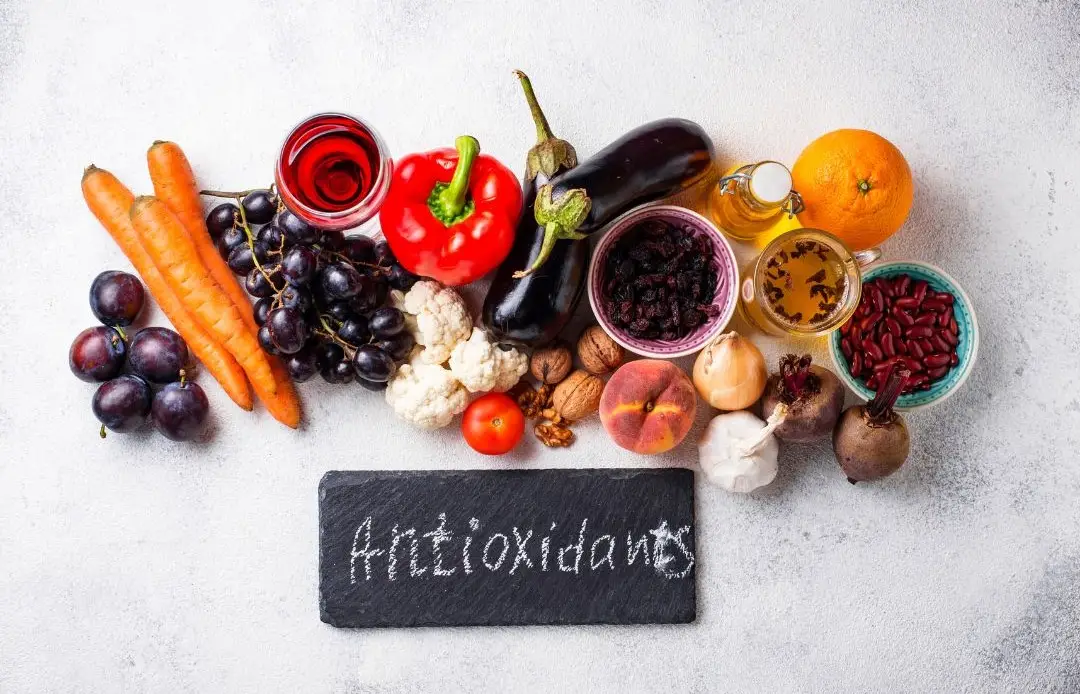We’ve all heard about antioxidants — they’re the buzzword in nutrition articles and on food packaging. But what are they really, and why are they so important? The team at Completely Aligned are here with the info. Let’s dive into the science behind these cellular superheroes and learn how to make them part of our daily meals.
What are antioxidants?
Antioxidants are molecules that protect your cells from damage caused by oxidative stress. This stress occurs when there’s an imbalance between free radicals—unstable molecules produced during normal body processes like breathing or exercising—and your body’s ability to neutralise them.
Free radicals aren’t all bad; they’re a natural part of processes like fighting infections. But when too many build up, they can damage DNA, proteins, and cell membranes. Over time, this can contribute to ageing and diseases like heart disease, cancer, and Alzheimer’s.
Antioxidants act as buffers, safely interacting with free radicals to stabilise them before they can cause harm. Think of antioxidants as the body’s peacekeepers, maintaining balance and preventing unnecessary cellular chaos.
Did you know?
Here’s something you might not know: some antioxidants, like glutathione, are actually produced naturally by your body! Glutathione, often called the “master antioxidant,” plays a critical role in detoxifying cells and supporting the immune system. However, factors like poor diet, stress, and ageing can deplete these natural stores — another reason why getting antioxidants through food is so important.
Where can you find antioxidants?
Antioxidants come from a variety of foods, often those rich in vibrant colours (and flavour!). Each type of antioxidant has a unique role, so variety is key:
- Vitamin C: Found in citrus fruits, bell peppers, and kiwi, it scavenges free radicals in the bloodstream.
- Vitamin E: Present in nuts, seeds, and green leafy vegetables, it protects cell membranes from oxidative damage.
- Beta-carotene: Found in carrots, sweet potatoes, and spinach, this pigment converts to vitamin A, crucial for skin and eye health.
- Polyphenols: Found in dark chocolate, green tea, and berries, these compounds are known for their anti-inflammatory properties.
- Flavonoids: Found in onions, apples, and red wine, they have antioxidant and heart-protective benefits.
How to get more antioxidants into your diet
Incorporating antioxidants doesn’t require a complete diet overhaul. (And it’s not an excuse to drink more wine!) Here are some tips:
- Eat the rainbow: Aim for a variety of colourful fruits and vegetables. The pigments that give them their hues often signal antioxidant content.
- Snack smarter: Nuts and fruit make amazing snacks. They also pack a punch with their antioxidant content.
- Spice it up: Herbs and spices like turmeric, cinnamon, and oregano are surprisingly high in antioxidants.
- Sip thoughtfully: Green tea, coffee, and even red wine (in moderation) are packed with beneficial compounds.
- Make chocolate your friend: Opt for dark chocolate (70% cocoa or more) for a tasty source of flavonoids.
Are supplements the answer?
While antioxidant supplements may sound like a quick fix, they don’t always mimic the benefits of whole foods. Supplements can be very helpful as just that – a supplement – an addition to a healthy diet. A balanced, food-first approach is the best way to support your health.
Conclusion
Antioxidants are more than just a health trend—they’re crucial for protecting your cells from damage and keeping your body in balance. By eating a variety of nutrient-rich foods, you can easily get the antioxidants you need to feel your best. If you have any questions about antioxidants and how you can incorporate them into your life, ask Teille during your next appointment here at Completely Aligned. In the meantime, Bon Appétit!
Dont forget to follow us on social media for more health tips throughout the year. We’re on Instagram and Facebook.
Information provided here (including text, graphics, images, outbound links, and other material) is for informational purposes only. It is general in nature and is not to be used or considered as a substitute for personalised professional medical advice, diagnosis, or treatment. Always seek the advice of your qualified allied health provider regarding any symptoms, medical conditions, or treatments and before undertaking any new health care regimen.
We're ready when you are
Don't let pain hold you back from doing the things you love
At Completely Aligned, our door is always open for you to get back to doing the things you love in life. Our team are available now to chat with you and work out how we can best support you.







